Supporters of star performers drive merchandise sales, form deep connections
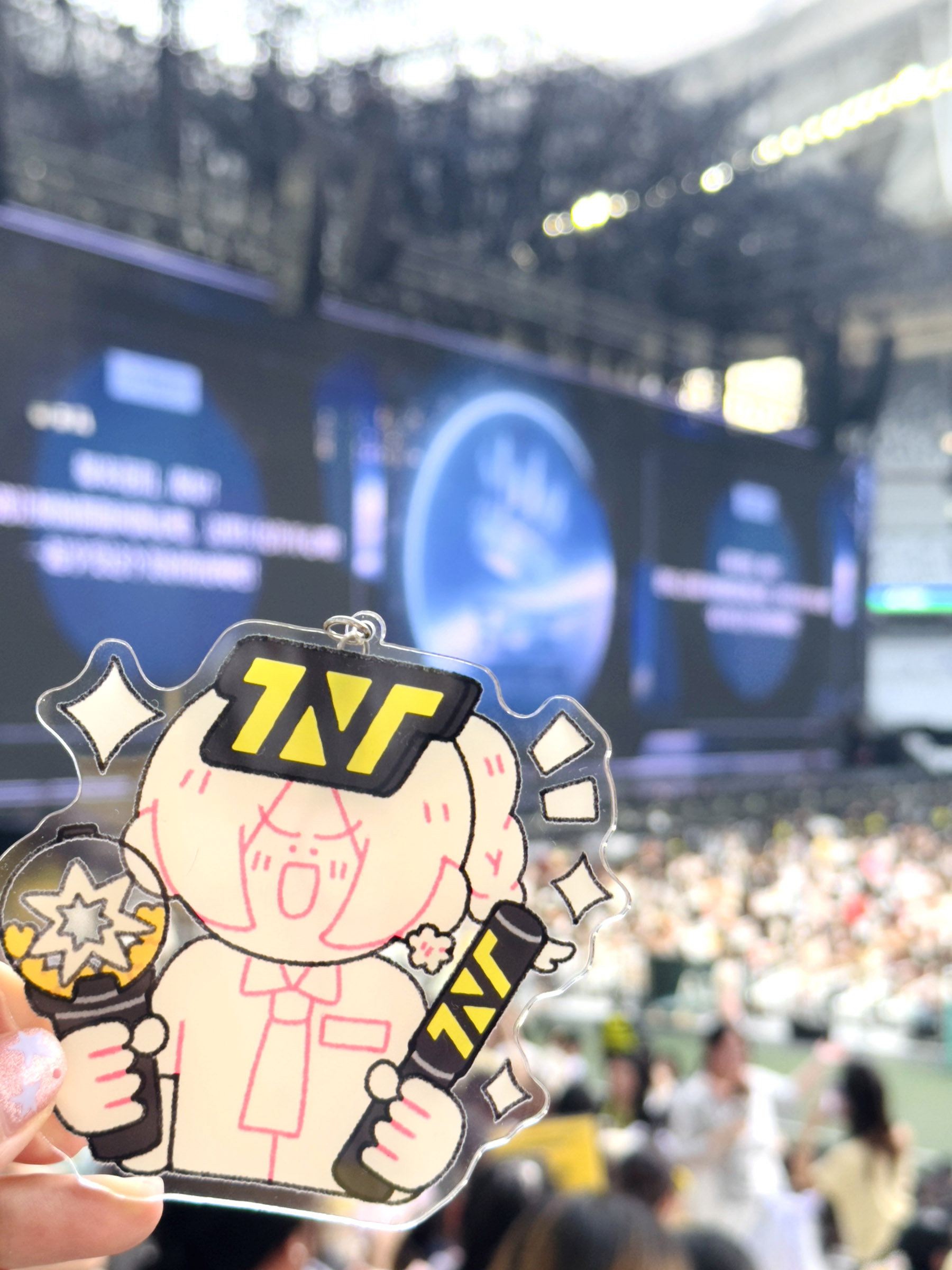
As China's live performance market rebounds, concerts are booming nationwide, and official fan merchandise has emerged as both a commercial powerhouse and a cultural touchstone for fans.
Sales of official merchandise — including light sticks, hand lamps, T-shirts and other branded goods — have surged in both popularity and price over the past decade.
The studio of Xu Ning, founder of Atelier Cons Pros, has worked on products and designs with artists such as cellist Ouyang Nana and rock band YOUNG DAN.
READ MORE: Fan pilgrimages to see stars live supercharging cities' economies
But one of his most renowned collaborations came in 2024 when Xu was commissioned to design official merchandise for singer Zhang Yuan, who ended his third nationwide concert tour, called White, in July.
Known as "Bird", Zhang's signature IP, is a chubby cartoon bird with tiny eyes and a dazed, "silly-cute" expression. Inspired by the singer's nickname, it reflects his warm and playful personality. The IP has grown into a fan favorite, with plush toys, figurines and comics like Bird Diaries, and even themed pop-up stores.
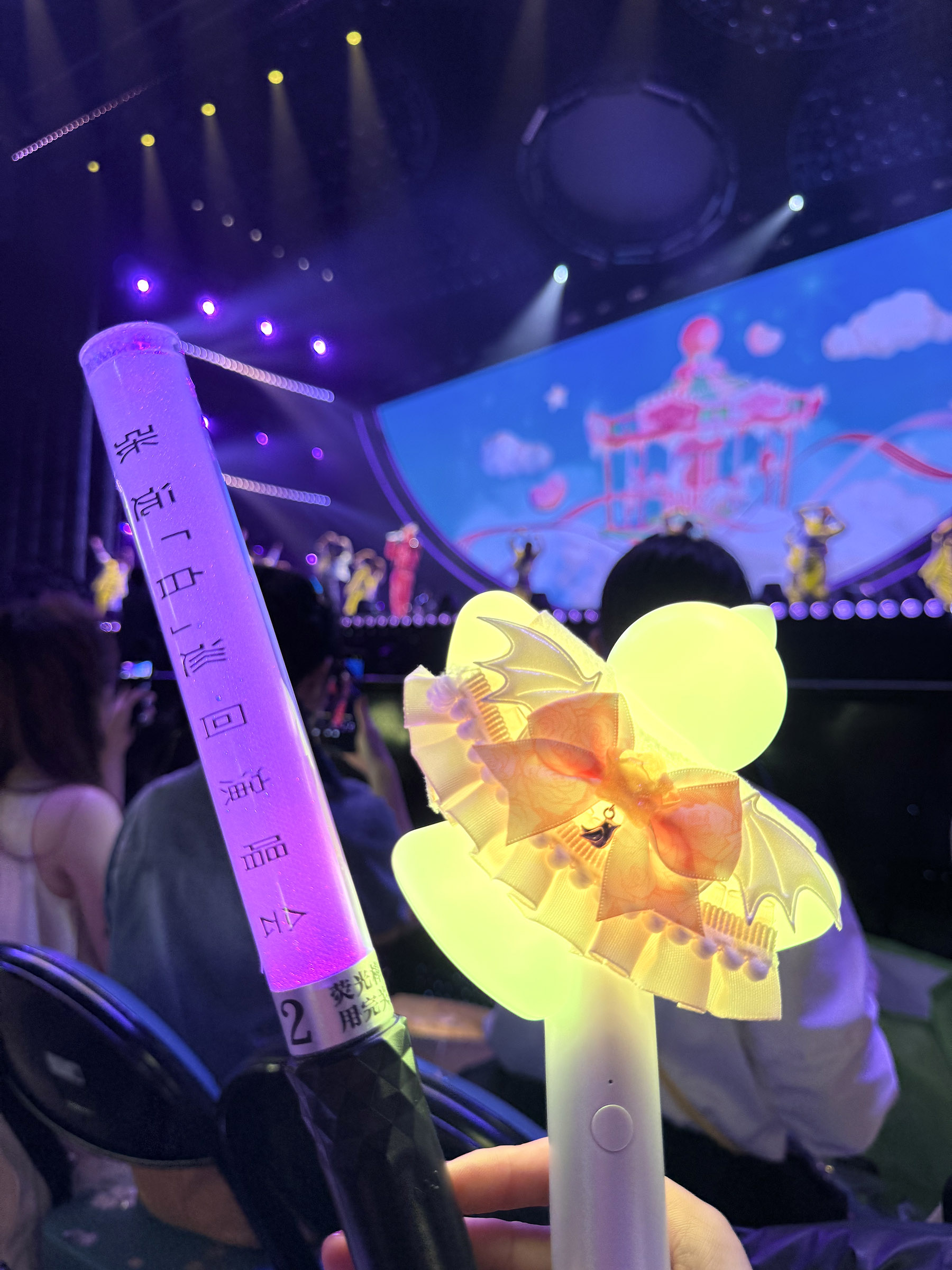
Xu said the design process began with research and observing Zhang's public persona, while also paying attention to online fan culture.
"Zhang Yuan is known for being straightforward and approachable. We wanted to create something equally direct — simple enough that even a child could sketch it with a pencil, and easy to spread among fans," said Xu.
Fans are also given a sewing manual and dimensions, and are encouraged to customize light sticks with beads, decorations, or to create ita bags packed with idol merchandise.
"We know fans have incredible creativity. By giving them a template, we invite them into the process, and this philosophy — valuing fans' habits and preferences rather than competing across artists — guides our team's designs," said Xu.
Beyond light sticks, Atelier Cons Pros has developed tote bags, phone stands and cushions designed for everyday use.
China's pan-entertainment market grew from just over 299 billion yuan ($41.95 billion) in 2017 to 700.4 billion yuan in 2021, with a compound annual growth rate of 23.7 percent, according to data published by Huajing Industry Research Institute in 2023.
It is expected to reach more than 1.34 trillion yuan by 2026. Fans' single-purchases of items are mainly below 100 yuan, followed by the 100 to 500 yuan range, revealing a "small amount, high frequency" consumption pattern, the data showed.
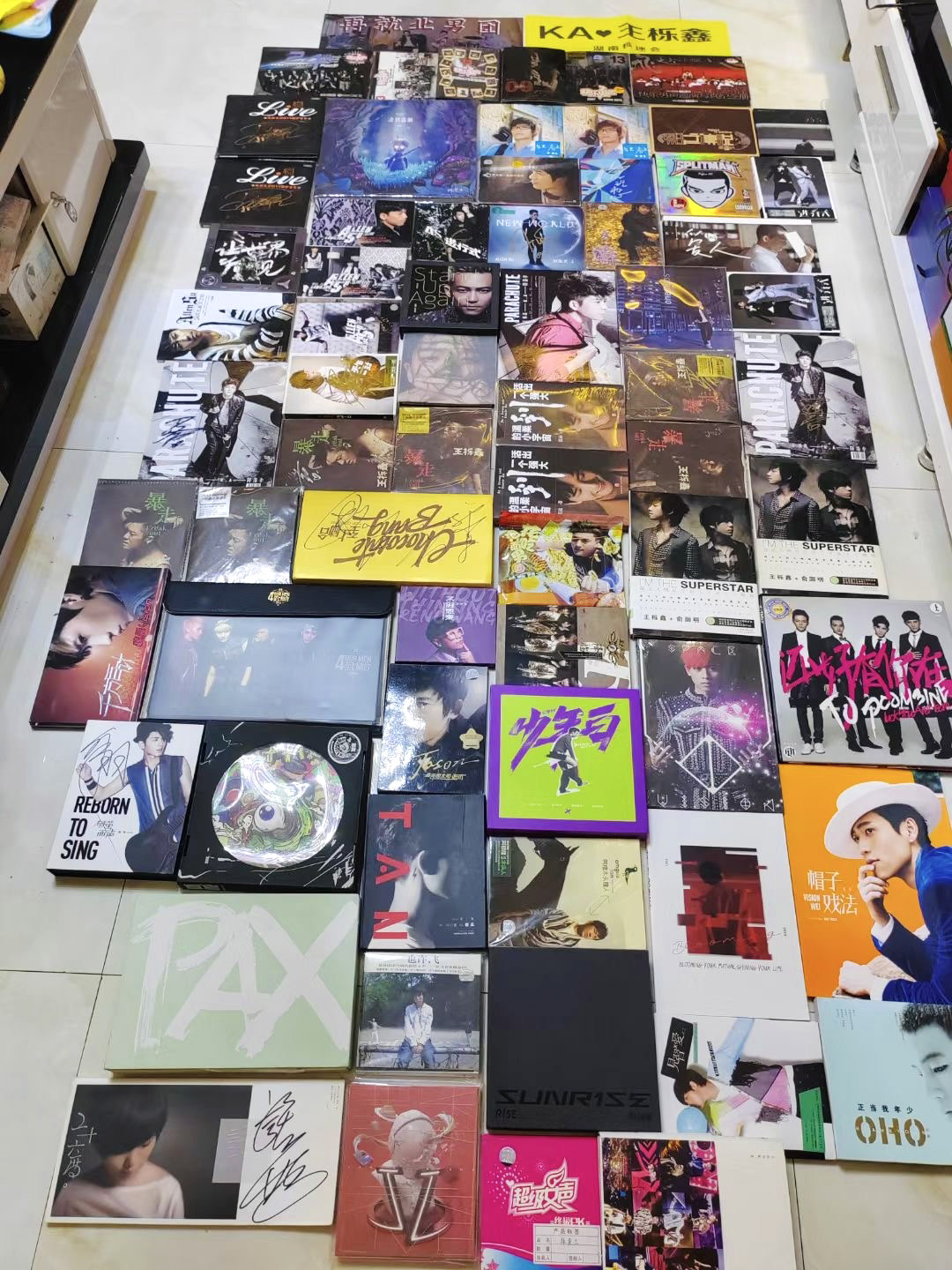
Fan-made with love
Fan culture is also thriving in the bespoke and do-it-yourself areas, where craft and self-expression intersect.
Chen Xiaojia, founder of Chunzhi handmade aromas in Hangzhou, Zhejiang province, began selling her wares in July 2024.
"I started out selling handmade candles, essential oils and aroma stones at local markets, and gradually combined my love of calligraphy with hand-painted aroma pieces inspired by scenic spots like West Lake," she said.
Chen shared her products on social media and attracted customers who wanted unique items to resell.
The workshop soon ventured into celebrity merchandise. Chen created hand-painted aroma pieces featuring names, song lyrics, or iconic sayings of artists such as Taiwan's Mayday band, pop icon Jay Chou, Singaporean singer-songwriter JJ Lin, and Taiwan pop singer Cyndi Wang.
"Designs often incorporate the celebrity's fan colors and symbolic elements, making products personal and collectible," said Chen.
One memorable order came from fans of Become a Farmer, a popular variety show featuring young participants experiencing rural life. Hand-painted pieces inspired by the show featuring heartwarming messages drew massive attention.
"The post's popularity even led to connections with music festival organizers, who purchased items for their fan booths," Chen said.
In recent years, the market has shifted from official merchandise toward creative, DIY-inspired pieces, reflecting the younger generation's values and aesthetics.
"Fans and organizers value uniqueness and practicality. Being original ensures no duplicate items, while combining beauty and function keeps products desirable," said Chen.
Li Luyao, a 25-year-old video editor in Beijing, views merchandise as a tangible connection to the artists who shaped her adolescence.
While her contemporaries followed the latest pop trends, her fandom began in 2012, when she was captivated by the contestants in the 2007 edition of the singing competition Super Boy.
"Every morning on my way to school, I would check for any merchandise of my idols. Even a small find would give me a spark of excitement in what was often a lonely world," Li said.
Despite having little money, she cherished small items such as 4-yuan magazines, which are all carefully displayed in her home years later.
"I was going through a difficult period and felt very alone. The music and youthful energy of the Super Boy contestants became my personal utopia — a source of comfort I couldn't find anywhere else," she recalled.
As her fandom matured, Li began attending concerts, music festivals and variety show recordings, sometimes traveling south to see her idols live.
Among her favorites are singers Wang Yuexin, Su Xing and Chen Chusheng. Her devotion extends beyond attending performances and she has created what she calls "support campaigns", including a retro-style tribute to Wang's albums Freak Out and Parachute.
"I wanted more people to hear these songs, to understand the passion and effort he put into them. Seeing fans in a stadium sing along to songs that had once only lived in my headphones was a moment of pure exhilaration," she said.
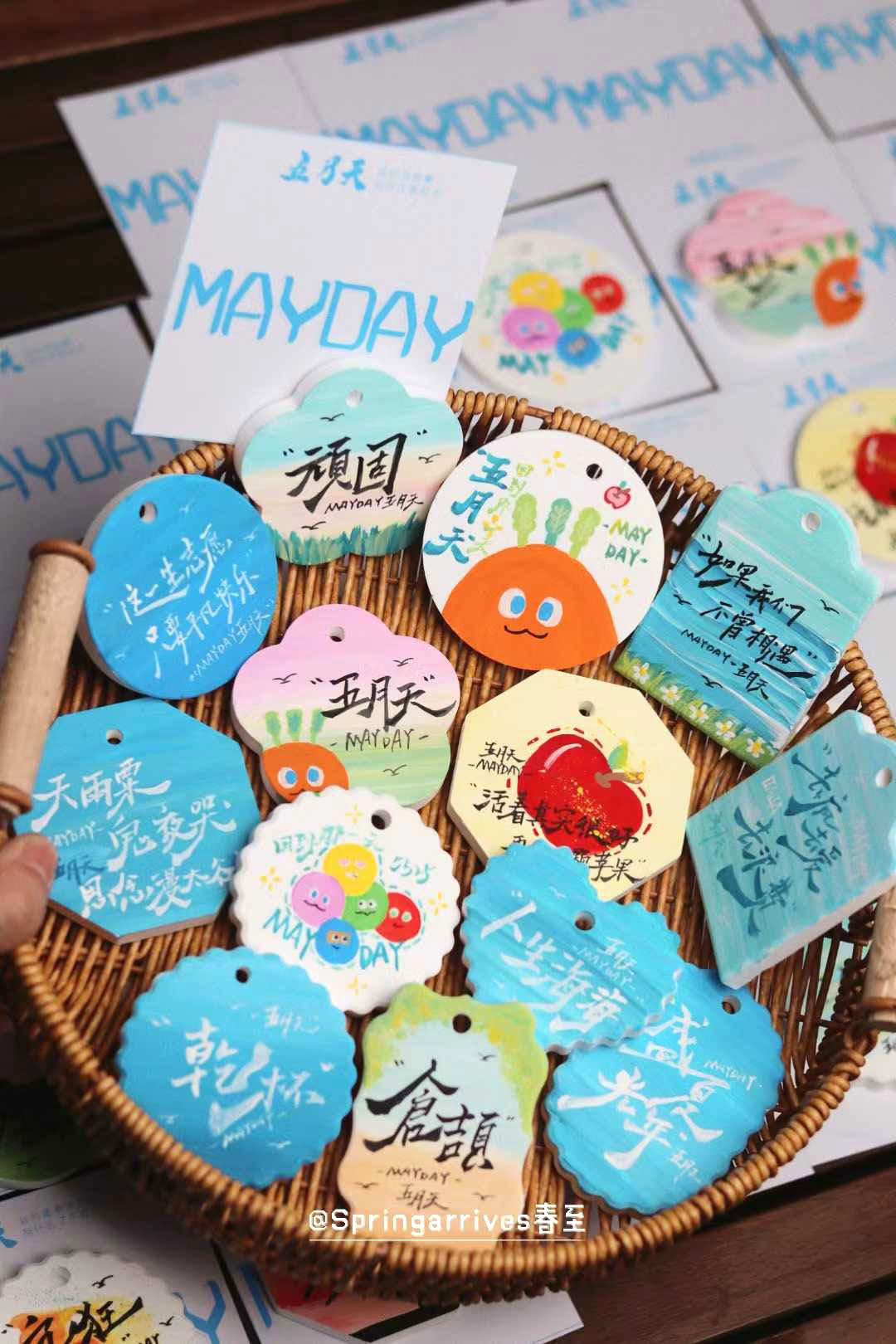
Among Li's most treasured items are physical copies of Freak Out and Su Xing's Jin Xing Shi. "I don't buy things just because others do. I follow my own feelings, and I'm more interested in collecting older albums that remind me of the era I grew up in," she said.
She said these artists appeared in her life at just the right moment. "Through their music, I learned to embrace my own ideas, to reconcile with myself, and to pursue what I truly love," said Li.
While Li's fandom is rooted in nostalgia, He Hehe, a content operator in her late 20s living in Shenzhen, Guangdong province, approaches celebrity merchandise differently.
For her, merchandise is not just memorabilia — it is an emotional anchor and a form of self-expression.
Her fandom began in 2018 while at university, when she became a fan of Chen Linong — a singer, actor and future member of Nine Percent — after watching the reality show Idol Producer. Her first purchase was a gift box with his endorsement, containing branded products and postcards.
"I didn't really think about whether or not I needed it. It was something he endorsed; I just wanted to help the sales figures," she said. Her impulse was to support Chen Linong commercially, even if the items she purchased weren't practical, He said.
After graduation, her focus shifted to the boy band Teens in Times. Unlike Chen Linong, whose products were mostly endorsements, TNT regularly released official items designed for fans — from photo cards to plush dolls.
"The frequency of purchases depends on the artists. If it's useful, like beverages or daily items, or if official goods include things I like, I'll order them," said He.
She spends 5,000 to 8,000 yuan annually on merchandise and "fan support", attending four to six offline events a year. Many official goods — photo books, postcards and plush key chains — are purchased simply for the thrill of unboxing.
"The peak happiness is opening the package. Afterward, they often sit in a corner collecting dust. Sometimes I don't even use notebooks or stickers, because just seeing them is fulfilling," she said.
Among her favorites are photo cards and cotton dolls.
"Photo cards are simple, beautiful, and collectible; cotton dolls carry a strong sense of companionship. No fan can resist a three-inch photo card and a cotton doll," she added.
She also has fan-made items like drawings and handmade goods, but considers official products more valuable.
"Official merchandise is closely connected to the artist, sometimes even designed with their involvement. Fan-made items are just extensions. Even when people like my work, it's ultimately because of the artist," He said.
One special piece bridges both worlds: a postcard she made for Chen Linong's birthday, later signed by him and mailed back to her. "It showed my effort wasn't meaningless. That card symbolizes how merchandise can carry memory, creativity, and even career direction," she said.
For He, merchandise is more than consumption; it's a way to escape daily pressures, a reward after long workdays, and a source of joy that fuels creativity. Piles of unopened items and cherished collectibles in her room testify to her devotion.
"To outsiders, they may look like simple goods, but to me, each piece tells a story of passion, community, and the enduring pull of star-chasing. If my daytime job gives me material rewards, then this gives me spiritual fuel," said He.
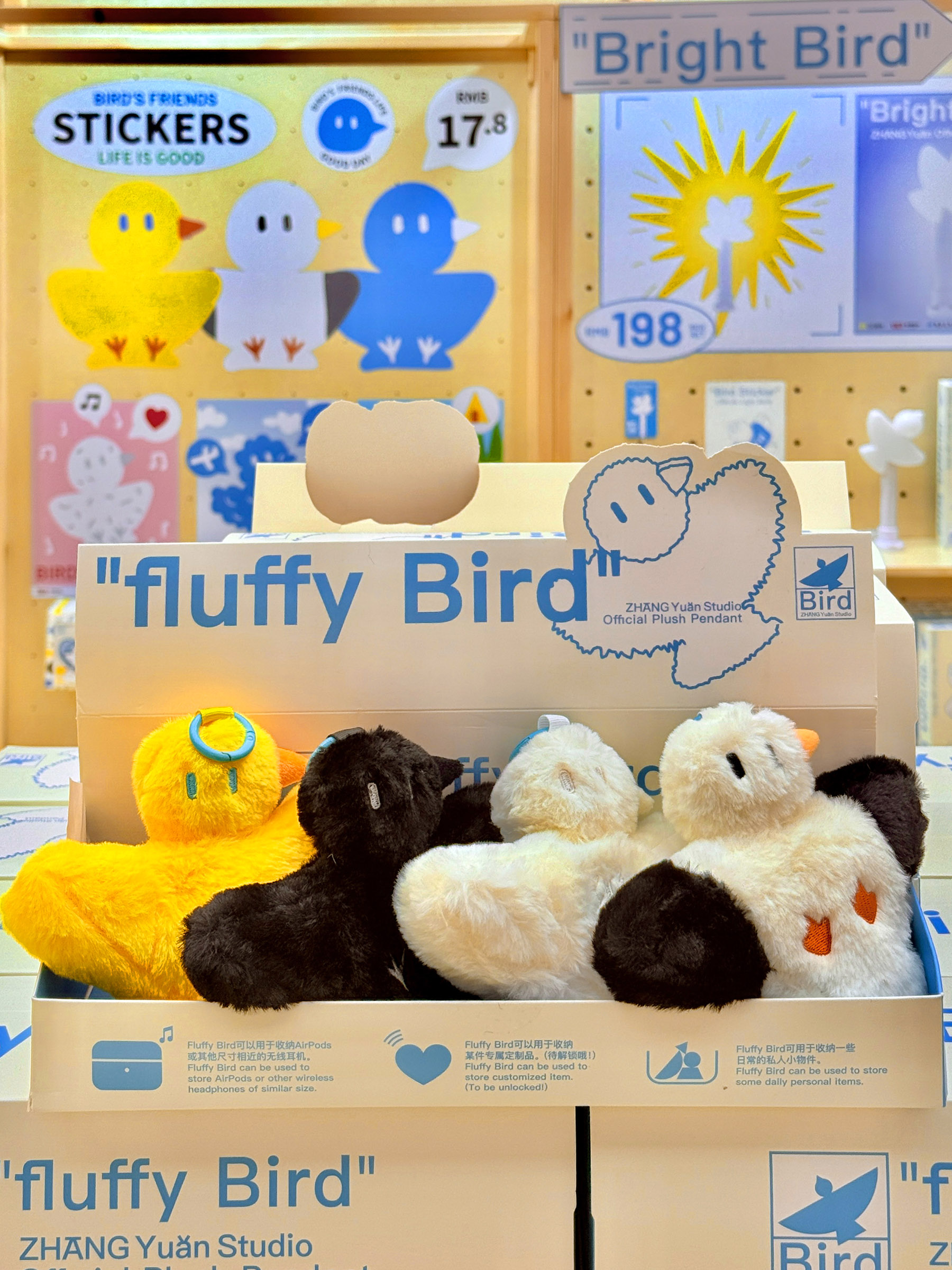
Evolving market
The Chinese fan market is evolving, according to statistics. The generations born after 1995 and 2000, now prioritize atmosphere, participation and social interaction over mere collecting. Fans are willing to pay more for the latest or limited-edition items, sharing them online to inspire others to follow.
In 2024, the national "fan economy" exceeded 1.23 trillion yuan, a year-on-year increase of 15.3 percent, and the figure is expected to reach almost 1.43 trillion yuan in 2025, data from industry research company ChinaIRN showed.
The "idol economy" accounts for 420 billion yuan, 34 percent of the total, with an average annual growth rate of 12.2 percent.
"Today's consumption is less about practical use and more about meaning," said Shen Yifei, an associate professor of sociology at Fudan University.
"For many young fans, especially Gen Z, buying merchandise is a way to express affection for an idol, to mark their identity within a community, and to enjoy the symbolic value that goes far beyond the object itself," she said.
For young fans, buying merchandise and engaging in support activities is not merely about consumption — it fulfills important emotional needs, Shen said. Light sticks, posters and other items help them feel seen and part of a group, turning their expressions of support into a way of building an emotional connection with their idols.
ALSO READ: Boom in live performances echoes loudly across China
In 2023, among China's Gen Z fan base, 72.2 percent purchased singles and albums or paid to attend concerts and movies, according to statistics released by iiMedia Research in 2024. A total of 51.1 percent participated in support-related consumption in preparing fan merchandise for important idol events.
"Many young fans describe their support as 'powering love' — giving back the joy and strength that idols provide," Shen said. "Beyond emotional expression, these practices nurture real skills, from banner design and video editing to event organizing, allowing fans to grow and find achievement within their communities."
However, Shen warned that when these needs are overly capitalized on and pushed toward competition or overspending, the original meaning of "love and connection "risks being lost.
"This is why families, schools and society should recognize and guide fan support in a healthy direction, encouraging emotional expression, personal growth and rational consumption," she said.
Contact the writer at sunnyu923@163.com


